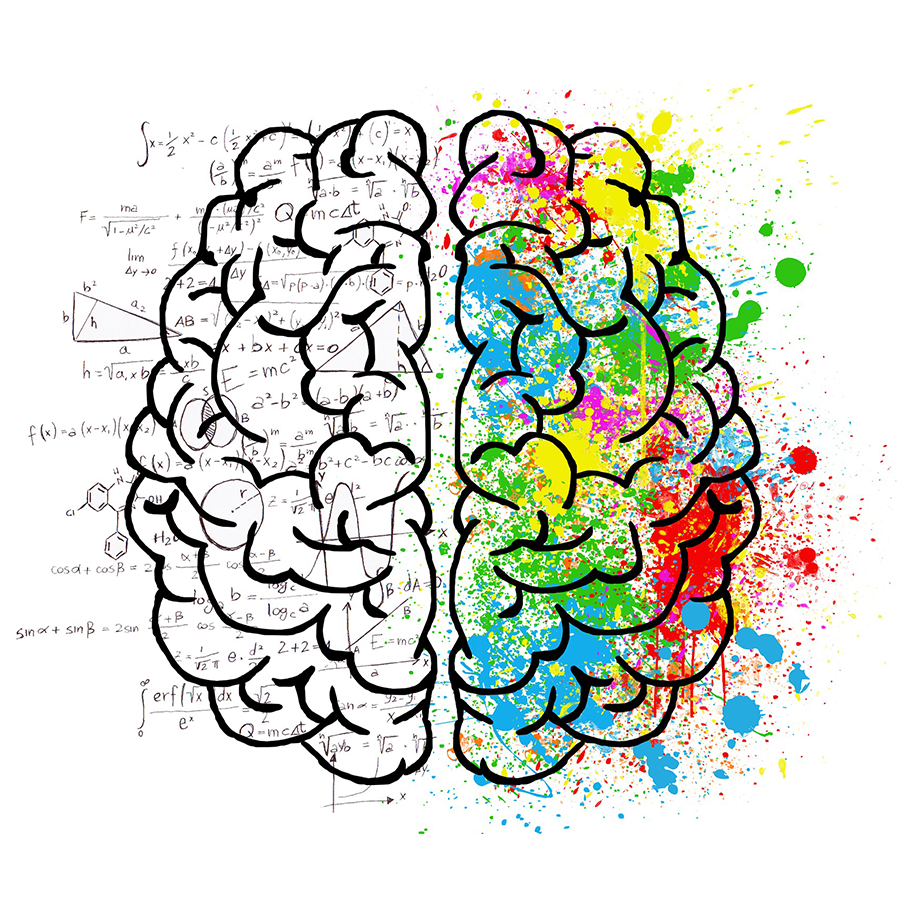What are the seven types of human intelligence? Or are there eight, or even ten, intelligence types?
As we’re now well and truly into this year’s exam season, heads are down throughout the land (and further afield): SATs, GCSEs, ‘A’ Levels, Ebacc, and so many more – it can seem endless. And while exams are certainly important for some professions and walks of life, academic intelligence is not the only intelligence out there.
Some theorists think there are at least eight types of intelligence in total, and it’s very rare indeed for one person to have equal levels of intelligence in all eight areas. Someone who is very academic might, for instance, make a real mess of things when it comes to cooking or mending things; someone who is a magician when it comes to fixing engines and putting things together might not be so capable when it comes to emotional or musical intelligence.
Howard Gardner first proposed his theory of multiple intelligences in 1983, and since that time, like all good theories, there have been additions and slight amendments. One of the intelligences he outlines is bodily-kinesthetic – sportspeople and dancers could be said to be high in this, while pilots, designers, architects, and those who drive for a living might be high in visual-spatial skills. For many of us, interpersonal skills allow us to get through the day – nurses, teachers, social workers and others who work with people usually have very high levels of interpersonal intelligence. Intrapersonal intelligence is also very valuable; this is where you have a high understanding of how you operate as an individual; those in the psychology field are likely to score highly here.
Meanwhile, what we think of as academic intelligence incorporates high levels of ability in the logical-mathematical arena and the verbal-linguistic. Actors, musicians and poets have high levels of musical-rhythmic intelligence.
Those who work particularly well with nature and the outdoors could be said to have strong naturalistic tendencies, which was added to the list slightly later than the original seven. Moral and existential intelligences were also later suggested as additional types. Over the years other theorists have talked about different types of intelligence, with emotional intelligence now valued very highly in some areas.
Most people have all of the intelligences to some degree, but every one of us will be more skilled in certain areas than others. So those who are finding the examination process something of a trial should take heart – there are many areas of life where other skills are just as valuable. And while not everyone has always agreed with Gardner’s theories, even his critics recognise his influence.
References
Akers, M. and Porter, G. (2018), What is Emotional Intelligence (EQ)?, PsychCentral 8 October 2018 https://psychcentral.com/lib/what-is-emotional-intelligence-eq/ (accessed 17 May 2019)
McGreal, S. A. (2013), The Illusory Theory of Multiple Intelligences, Psychology Today 23 November 2013 (accessed 17 May 2019)
MI Oasis: The Official Authoritative Site of Multiple Intelligences, https://www.multipleintelligencesoasis.org, updated 2019 (accessed 17 May 2019)
Theory of Multiple Intelligences (https://en.wikipedia.org/wiki/Theory_of_multiple_intelligences, updated 2019 (accessed 17 May 2019)
Some theorists think there are at least eight types of intelligence in total, and it’s very rare indeed for one person to have equal levels of intelligence in all eight areas. Someone who is very academic might, for instance, make a real mess of things when it comes to cooking or mending things; someone who is a magician when it comes to fixing engines and putting things together might not be so capable when it comes to emotional or musical intelligence.
Howard Gardner first proposed his theory of multiple intelligences in 1983, and since that time, like all good theories, there have been additions and slight amendments. One of the intelligences he outlines is bodily-kinesthetic – sportspeople and dancers could be said to be high in this, while pilots, designers, architects, and those who drive for a living might be high in visual-spatial skills. For many of us, interpersonal skills allow us to get through the day – nurses, teachers, social workers and others who work with people usually have very high levels of interpersonal intelligence. Intrapersonal intelligence is also very valuable; this is where you have a high understanding of how you operate as an individual; those in the psychology field are likely to score highly here.
Meanwhile, what we think of as academic intelligence incorporates high levels of ability in the logical-mathematical arena and the verbal-linguistic. Actors, musicians and poets have high levels of musical-rhythmic intelligence.
Those who work particularly well with nature and the outdoors could be said to have strong naturalistic tendencies, which was added to the list slightly later than the original seven. Moral and existential intelligences were also later suggested as additional types. Over the years other theorists have talked about different types of intelligence, with emotional intelligence now valued very highly in some areas.
Most people have all of the intelligences to some degree, but every one of us will be more skilled in certain areas than others. So those who are finding the examination process something of a trial should take heart – there are many areas of life where other skills are just as valuable. And while not everyone has always agreed with Gardner’s theories, even his critics recognise his influence.
References
Akers, M. and Porter, G. (2018), What is Emotional Intelligence (EQ)?, PsychCentral 8 October 2018 https://psychcentral.com/lib/what-is-emotional-intelligence-eq/ (accessed 17 May 2019)
McGreal, S. A. (2013), The Illusory Theory of Multiple Intelligences, Psychology Today 23 November 2013 (accessed 17 May 2019)
MI Oasis: The Official Authoritative Site of Multiple Intelligences, https://www.multipleintelligencesoasis.org, updated 2019 (accessed 17 May 2019)
Theory of Multiple Intelligences (https://en.wikipedia.org/wiki/Theory_of_multiple_intelligences, updated 2019 (accessed 17 May 2019)
Related Posts
-
In the Land of the Northern Lights
-
Celebrating Refugee Week
-
Wild March winds and gentle April showers eventually help May flowers to grow in our gardens, so where are the bees and butterflies?
-
Dual Language Story Books - Welcome, Bienvenu, Come on In
-
Language – so much more than just the spoken word
-
Look Before You Leap – And What Have Silk Gloves Got To Do With Leap Years?
-
Spotlight on Dari
-
EAL: The home language as a practical strength
-
When is a fruit not a fruit? When it’s a tomato…which is also a vegetable...
-
Sing something simple – using songs for language learning












